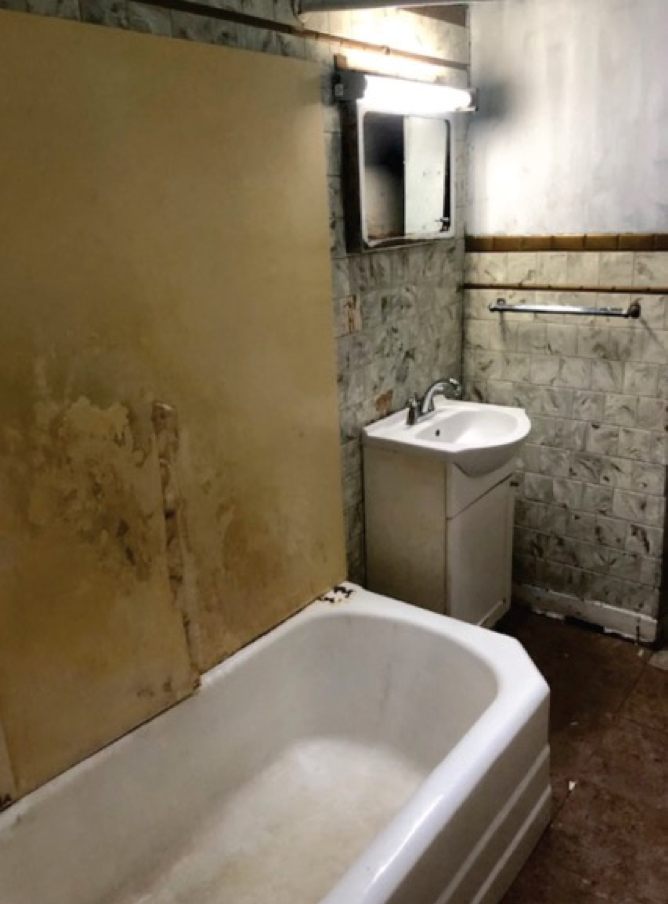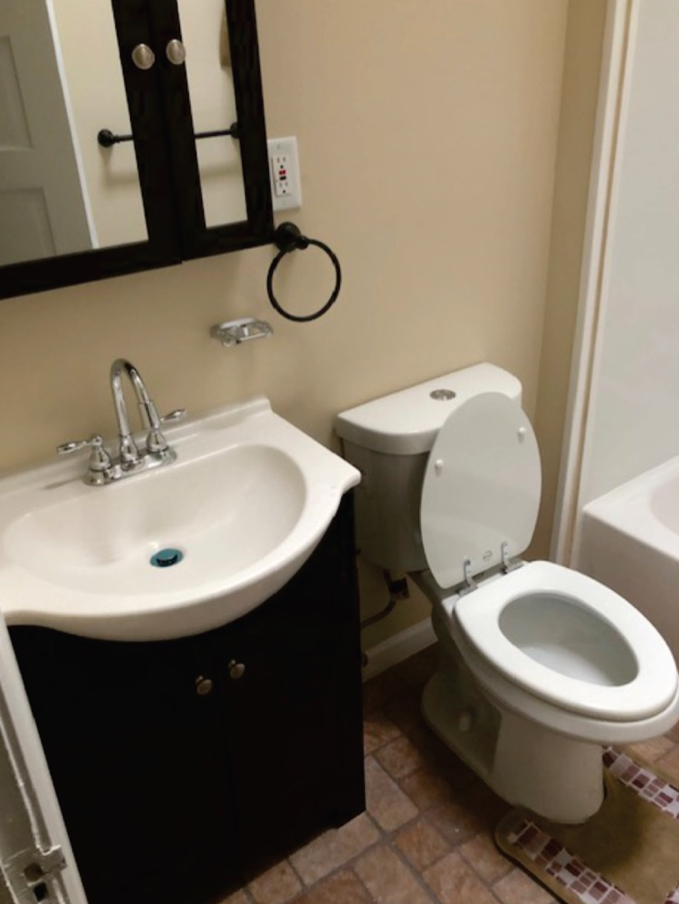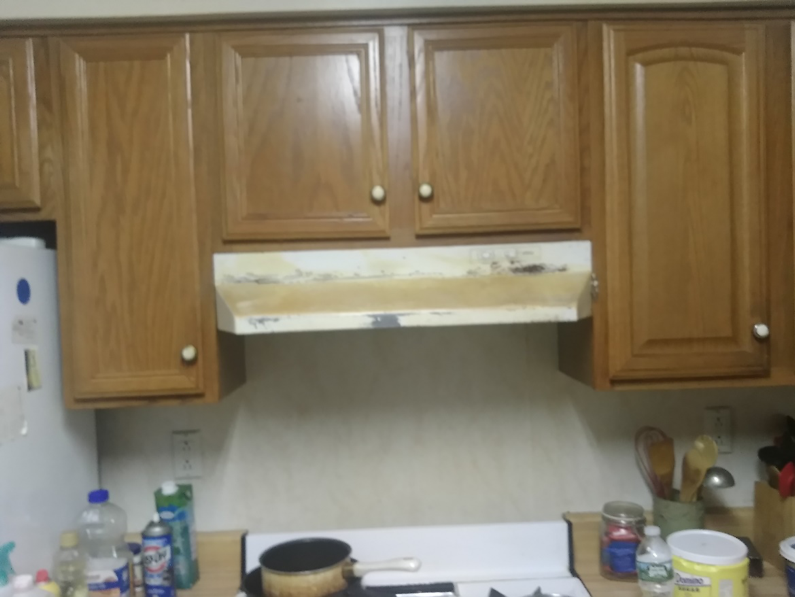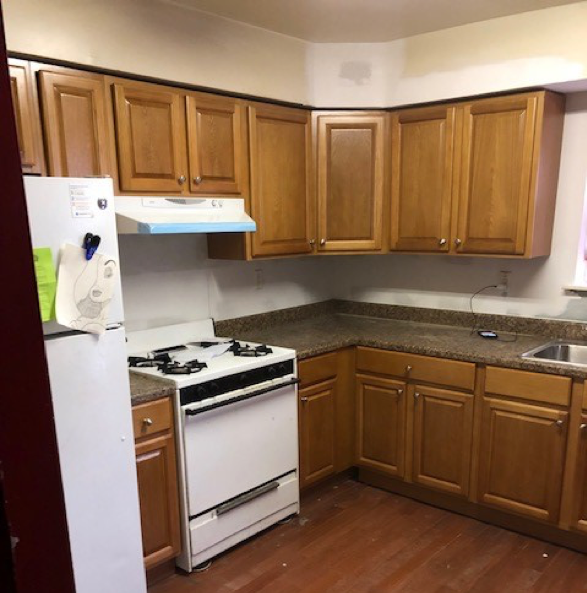CAPP+: A Community Partnership to Help Kids with Asthma
Charmane Braxton was born and raised in Philadelphia, and was one of the first parents to participate in Children’s Hospital of Philadelphia’s (CHOP) Community Asthma Prevention Program (CAPP), which provides free asthma education and care coordination support for caregivers and their children. Today, Charmane is the most seasoned Community Health Worker (CHW) in CAPP and has been  providing education and supplies to help reduce asthma triggers through the program for 20 years, reaching more than 1,000 families.
providing education and supplies to help reduce asthma triggers through the program for 20 years, reaching more than 1,000 families.
Throughout her years meeting with Philadelphia families as a CHW, Charmane has seen the poorest housing conditions, from cockroach-infested homes to walls covered in black mold. She knew families appreciated the asthma learning opportunities and free supplies, but she couldn’t help but feel helpless as she sat with them, surrounded by the dilapidation that was the norm for so many.
Looking Upstream to Address Asthma
Miraculously, one of Charmane’s neediest families came into her life just as CAPP was about to expand. She had met this family before—Charmane worked with the older children 15 years ago and returned years later to help the youngest with asthma symptoms. The house was just as she remembered—it still smelled of a damp, musty cockroach odor and was falling apart at the seams. The walls were half gone, and those standing were stained with water and mold. The inside was barren of furniture and the sound of her voice echoed throughout the hollow house. Mattresses were laid on the floor and a blanket was hung across the dining room to keep the room warm, while a kerosene heater hummed close by.
When she arrived, the youngest child ran to her immediately to hug her, excited to have a new person’s attention. Mom shuffled in not too far behind her daughter, with her shoulders slouched forward and her voice shy, but sweet. She looked tired and void of hope. Charmane remembered encouraging her years ago, but the same air of helplessness remained. So she sat down with mom to reintroduce herself and explain the CAPP program, hoping to help prevent another asthma attack that could land her child in the hospital for the third time that year.
Charmane would go on to ask about her child’s asthma triggers to better understand how she ended up in the emergency room. This concept of addressing “upstream health” is gaining traction in the health care industry. Instead of treating a child’s disease after the fact (or at the bottom of the stream), medical systems are beginning to consider the factors that “placed children in the water” in the first place. Since asthma attacks are often initiated by environmental triggers, housing conditions are arguably the most influential social determinant for asthmatic patients. This issue is particularly prevalent among children living in West Philadelphia neighborhoods where housing is old and asthma disproportionately impacts low-income African American youth.
Going Beyond Education to Action
CAPP has been ahead of the “upstream health” curve since 1997, utilizing CHWs like Charmane to visit families in their homes, build real relationships and connect them to resources, strategies and trigger-remediation supplies. The program has been shown to successfully reduce hospitalizations by up to 50% for patients, however CAPP’s founder and PolicyLab researcher, Dr. Tyra Bryant-Stephens, always dreamed of bringing in partners to undertake the much needed asthma-related structural repairs that burdened many of CAPP’s underserved families. In a recent blog post, Dr. Bryant-Stephens described the long-awaited partnership that made this dream come true for 17 families in West Philadelphia (as of June 2019) under the BUILD Health Challenge Grant.
CHOP decided to keep the momentum going by expanding the project to create CAPP+. The new program combines the traditional CAPP intervention with major home repairs, and is available to 100 West Philadelphia families in the first year of the program. CHOP is partnering with the Philadelphia Housing Development Corporation (PHDC) to oversee the home repairs and has asked that PHDC hire local, minority and women-owned contractors to contribute to the city’s economic development. Repairs will target common asthma triggers such as dust, pests and mold. PolicyLab will be conducting CAPP+’s programmatic evaluation to support sustainability and provide data to help inform city policies that impact health and housing. The evaluation group anticipates that CAPP+’s efforts will improve asthma control, further reduce hospitalizations and enhance families’ quality of life.
Asthma Support Comes Full Circle
This program couldn’t have come at a better time for Charmane’s family. The family was not unlike others Charmane worked with throughout the years, and she was eager to help: “Before the home repair program, I always felt that my back was up against the wall. We were telling families all of these things to do, but we didn’t have the funding to fix the structural issues that we knew were causing the problem. I felt angry that I couldn’t do anything more for them and it inspired me to advocate harder for the resources I could provide to them.”
Charmane was thrilled to tell the family about the CAPP+ program. She finally felt that she could offer mom something that would change her life in a sustainable way, keeping problems from reoccurring in the future. With tears in her eyes, mom threw her arms around Charmane and expressed the deepest gratitude. The work on the house lasted six weeks and PHDC’s contractors were able to replace moldy walls with fresh drywall, fix the leaks that were causing the mold and seal up the holes that served as entryways for pests. Charmane walked into the home for the final inspection and was greeted by a smiling mom. Along with mom’s happiness, Charmane sensed a bit of relief—that a burden had been lifted from her shoulders. She could breathe again. Her family could breathe again.
See below for before and after photos of home repairs.




Robin Miccio, MS, is the program manager for the Community Asthma Prevention Program and oversees the CAPP+ project.
